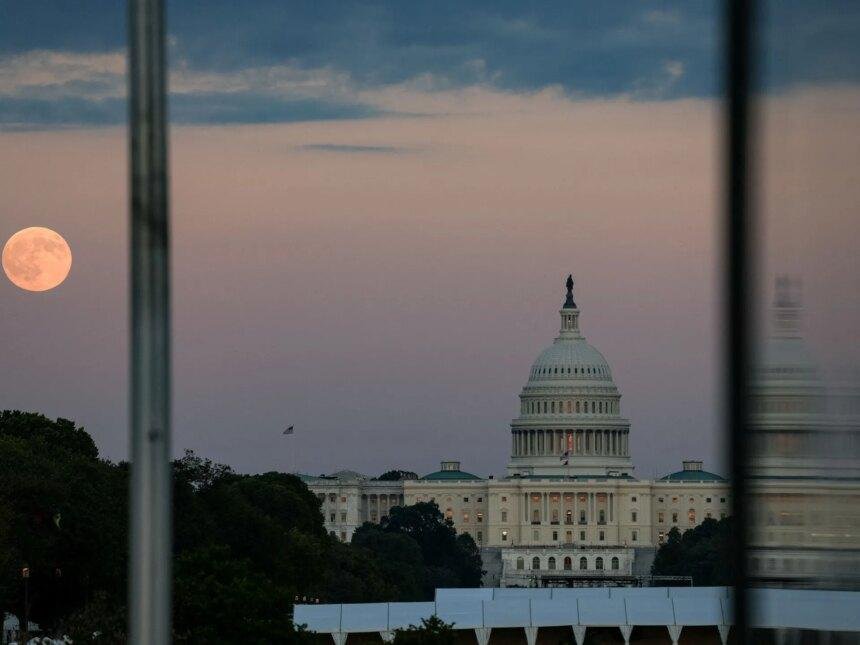Government Shutdown Continues as Trump Offers, Then Retracts, Healthcare Negotiation
As the U.S. government shutdown stretches into its seventh day, President Donald Trump has made headlines by suggesting a willingness to negotiate with Democrats over healthcare subsidies. However, he quickly retracted this offer, intensifying the ongoing political standoff. The shutdown, which has significant implications for federal services and employees, has become a focal point of contention between the two major political parties.
The Shutdown’s Context
The current government shutdown is rooted in a complex web of political disagreements, primarily centered around healthcare funding. The impasse has left many federal employees in limbo and has raised concerns about the potential long-term effects on public services. Historically, government shutdowns have often stemmed from budgetary disputes, but this particular standoff highlights the contentious nature of healthcare policy in the United States.
Trump’s Initial Offer
On Monday, Trump took to social media to express his readiness to collaborate with Democrats on healthcare issues, stating, “I am happy to work with the Democrats on their Failed Healthcare Policies, or anything else, but first they must allow our Government to re-open.” This statement was made on Truth Social, where Trump has been vocal about his administration’s policies and positions.
Earlier in the day, during a press briefing at the Oval Office, Trump indicated that he was optimistic about reaching a deal that could lead to improvements in healthcare. “We have a negotiation going on right now with the Democrats that could lead to very good things,” he remarked, as reported by CBS News.
Democratic Response
However, Senate Minority Leader Chuck Schumer quickly refuted Trump’s claims, asserting that no negotiations were taking place. “This isn’t true,” Schumer stated in a post on X (formerly Twitter). He emphasized that Democrats have been urging Republicans to engage in discussions aimed at delivering better healthcare solutions for American families.
Schumer’s response underscores the deep divisions between the parties. He added, “If Republicans are finally ready to sit down and get something done on healthcare for American families, Democrats will be there – ready to make it happen.” This exchange highlights the ongoing struggle for bipartisan cooperation in a highly polarized political environment.
Legislative Stalemate
The political deadlock was further exacerbated on Monday evening when the Senate failed to pass a Republican-sponsored bill aimed at extending government spending until the end of November. The vote, which ended with 52 in favor and 42 against, fell short of the 60 votes required to advance the legislation. This failure reflects the challenges faced by the Republican majority in navigating a divided Congress.
Democrats, holding a minority in both houses, are leveraging the spending bill to push for negotiations on critical healthcare funding. They are advocating for the extension of expiring subsidies and the reversal of cuts to Medicaid assistance, which is vital for low-income and disabled Americans. The urgency of these discussions is heightened by the impending healthcare enrollment period set to begin in November.
The Stakes of Healthcare Policy
The Kaiser Family Foundation, a non-partisan organization focused on healthcare policy, has warned that the expiration of these subsidies could lead to a dramatic increase in healthcare premiums. According to their projections, premiums could more than double for those currently receiving subsidies, placing additional financial strain on American families.
This situation is reminiscent of past healthcare debates, particularly the contentious discussions surrounding the Affordable Care Act (ACA) during the Obama administration. The ACA was a landmark piece of legislation aimed at expanding healthcare access, but it faced significant opposition from Republicans, leading to ongoing debates about its effectiveness and sustainability.
Conclusion
As the government shutdown continues, the political landscape remains fraught with tension. Trump’s initial offer to negotiate on healthcare, followed by a swift retraction, illustrates the complexities of bipartisan dialogue in today’s political climate. With both parties entrenched in their positions, the path forward remains uncertain. The stakes are high, not only for federal employees and services but also for millions of Americans who rely on affordable healthcare. As the situation develops, the need for constructive dialogue and compromise becomes increasingly critical.











